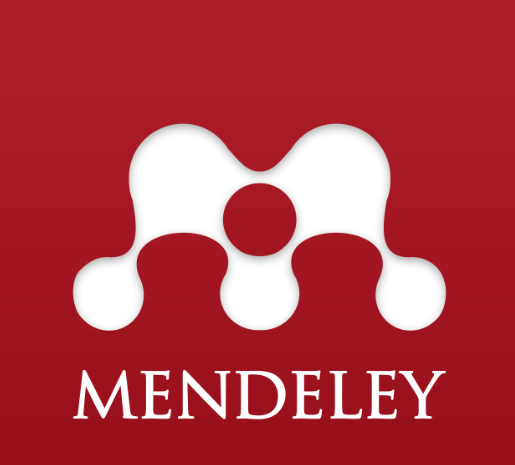The Implementation of Learning Organization to Increasing SME Performance through Innovation
DOI:
https://doi.org/10.22219/mb.v11i2.20585Keywords:
learning organization, Innovation, business performanceAbstract
The resulting performance measures the success of a business. Performance can be said good or not based on several aspects, including conducting continuous learning to improve skills and achieve business goals and innovating to maintain the running business. The objective of this study was to analyze the impact of learning organizations on business performance through innovation as a direct and indirect mediation. This study was conducted in Micro, Small, and Medium Enterprises (MSMEs) in Malang City with a sample of 50 respondents. Data analysis in this study used path analysis with SmartPLS 3.0 software. The results found that the better the implementation of the learning organization, the greater the business performance and innovation. Innovation has a mediating role in the effect of learning organization on performance.
Downloads
References
Ambarwati, T., & Fitriasari, F. (2021). Nilai-Nilai Kewirausahaan Dan Komitmen Berwirausaha Terhadap Kinerja UMKM dengan Strategi Bisnis Sebagai Moderasi. Jurnal Bisnis Dan Manajemen, 8(1), 44–56. https://doi.org/10.26905/jbm.v8i1.5198
Argyris, C., & Schon, D. A. (1996). Organizational Learning: A theory of action perspective. Addison Wesley.
Atalay, M., Anafarta, N., & Sarvan, F. (2013). The Relationship between Innovation and Firm Performance: An Empirical Evidence from Turkish Automotive Supplier Industry. Procedia - Social and Behavioral Sciences, 75, 226–235. https://doi.org/10.1016/j.sbspro.2013.04.026
Az-zahra, F., & Dewi, E. F. (2021). IMPLEMENTATION PLAN ON LEARNING ORGANIZATION PRACTICE TO INCREASE BUSINESS PERFORMANCE OF SAVLEE COMPANY. 3(9), 362–376. https://doi.org/10.35631/AIJBES.39024
Bucic, T., Robinson, L., & Ramburuth, P. (2010). Effects of Leadership Style on Team Learning. Journal of Workplace Learning, 22(4), 228–248.
Calcantone, R. J., Cavusgil, S. T., & Zhao, Y. (2002). Learning orientation, firm innovation capability, and firm performance. Industrial Marketing Management, 31, 515–524.
Crawford, C. M., & Di Benedetto, C. A. (2000). New Products Management (Sixth Edit). McGraw-Hill.
Fontana, A. (2011). Inovate We Can! PT. Gramedia.
Hassan, M. U., Shaukat, S., Nawaz, M. S., & Naz, S. (2013). Effects of Innovation Types on Firm Performance: An Empirical Study on Pakistan’s Manufacturing Sector. Pakistan Journal Of Commerce and Social Sciences, 7(2).
Ismail, M. (2005). Creative climate and learning organization factors: their contribution towards innovation. Leader Organ Dev J, 26(8), 639–654.
JA, A.-C., VJ, G.-M., & E., C.-P. (2007). Leadership and organizational learning’s role on innovation and performance: lessons from Spain. Ind Market Manag, 36, 349–359.
Kotler, P. (2009). Marketing Management 13th edition. Pearson
Lesceviva, M. (2004). Rural Entrepreneurship Success Determinant. Latvian University of Agriculture, Eksjo, Latvia.
Liao, L. (2006). A learning organization perspective on knowledge-sharing behavior and firm innovation. 25, 227–236.
Lubis, Y., Hermanto, B., & Edison, E. (2018). Manajemen dan Riset Sumber Daya Manusia. Alfabeta.
Lumpkin, G. T., & Dess, G. G. (2015). LINKING TWO DIMENSIONS OF ENTREPRENEURIAL ORIENTATION TO FIRM PERFORMANCE: THE MODERATING ROLE OF ENVIRONMENT AND INDUSTRY LIFE CYCLE. Journal of Economics and Economic Education Research, 16(3), 119–144.
Nur’aini, M., & Sanaji. (2013). Pengaruh Orientasi Pasar Terhadap Kinerja Pemasaran Melalui Inovasi. Jurnal Ilmu Manajemen, 1(4), 1–12.
Paraskevi, D., & Panagiotis, T. (2015). Measuring the Impact of Learning Organizational on Job Satistifaction and Individual Performance in Greek Advertising Sector. Procedia Economics and Finance, 175, 367–375.
Pratiwi, U., Ulfah, P., Lestari, P., Soedirman, U. J., Feb, K., Hr, J., & Purwokerto, B. (2019). Pengaruh organisasi pembelajaran terhadap kinerja umkm di banyumas. 5(November), 58–67.
Safitri, C. L., Setyanti, S. W. L. H., & Sudarsih, S. (2018). Knowledge Sharing Sebagai Mediasi Pengaruh Learning Organization Terhadap Kinerja Karyawan. Jurnal Inspirasi Bisnis Dan Manajemen, 2(1), 79. https://doi.org/10.33603/jibm.v2i1.1059
Schreder, C. (2015). Organizational Learning-the boost to Organizational Performance: An Organization Development assessment amongst Austrian business entities. Journal of WEI Business and Economics.
Senge, P. (2002). Batam: Interaksa. In The Fifth Discipline Fieldbook. Interaksa.
Senge, P. M. (2006). The Fifth Discipline: The Art and Practice of theLearning Organization. Doubleday.
Suendro, G. (2010). Analisis pengaruh inovasi produk melalui kinerja pemasaran untuk mencapai keunggulan bersaing berkelanjutan (Studi Kasus Pada Industri Kecil dan Menengah Batik Pekalongan). Universitas Diponegoro.
Sugiyarto. (2020). Efesiensi Menjadi Budaya Organisasi Pelaku UMKM. Times Indonesia. https://www.timesindonesia.co.id/read/news/303649/efesiensi-menjadi-budaya-organisasi-pelaku-umkm
Suliyanto, & Rahab. (2012). The Role of Market Orientation and Learning Orientation in Improving Innovativeness and Peformance of Small and Medium Enterprises. Asian Social Science, 8(1), 134–140.
Tjiptono, F. (2008). Pemasaran Strategik. Andi.
Toaha, M., Maupa, H., Brasit, N., Taba, I., & Aswan, A. (2019). Competitive Sustainability of Food and Beverage SMEs in South Sulawesi. 92(Icame 2018), 608–615. https://doi.org/10.2991/icame-18.2019.64
Trang, N. I., Armanu, Sudiro, A., & Noermijati. (2013). Organizational Commitment as Mediation Variable Influence of Work Motivation, Leadership Style and Learning Organization to the Employees Performance. IOSR Journal of Business and Management (IOSR-JBM), 7(2), 12–25.
Tung, J. (2012). A Study on Product Innovation on Firm Performance. International Journal of Organizational Innovation, 4(3), 319–330. http://search.proquest.com/docview/921995115?accountid=10297
Ugurluoglu, O., Aldogan, E. U., & Dilmac, E. (2013). The impact of managers ’ perceptions of learning organizations on innovation in healthcare : sample of Turkey. October 2012, 158–168.
Downloads
Published
Versions
- 2021-10-12 (2)
- 2022-03-16 (1)
Issue
Section
License
Copyright (c) 2021 Manajemen Bisnis

This work is licensed under a Creative Commons Attribution 4.0 International License.
Authors who publish with this journal agree to the following terms:
- Authors retain copyright and grant the journal right of first publication with the work simultaneously licensed under a Creative Commons Attribution-ShareAlike 4.0 International License that allows others to share the work with an acknowledgment of the work's authorship and initial publication in this journal.
- Authors are able to enter into separate, additional contractual arrangements for the non-exclusive distribution of the journal's published version of the work (e.g., post it to an institutional repository or publish it in a book), with an acknowledgment of its initial publication in this journal.
- Authors are permitted and encouraged to post their work online (e.g., in institutional repositories or on their website) prior to and during the submission process, as it can lead to productive exchanges, as well as earlier and greater citation of published work (See The Effect of Open Access).

This work is licensed under a Creative Commons Attribution-ShareAlike 4.0 International License.




71.png)





